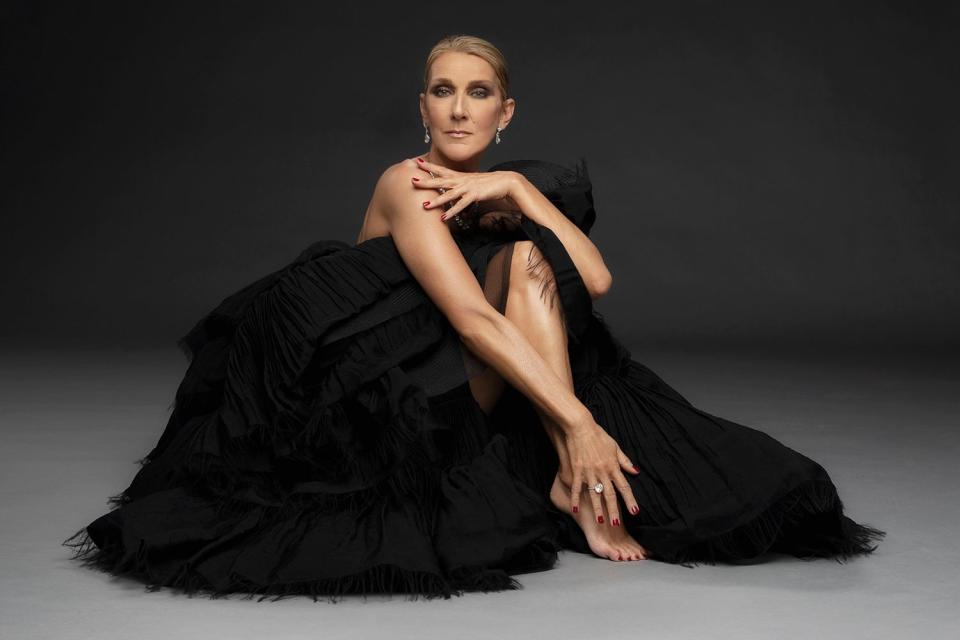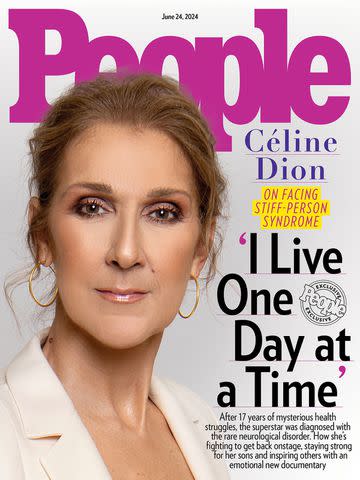Céline Dion Took Up to 90 Milligrams of Valium During Health Struggles: 'It Could Have Been Fatal' (Exclusive)
"I did not understand that I could have gone to bed and stopped breathing," the superstar tells PEOPLE in its latest cover story

Denise Truscello
After managing undiagnosed stiff-person syndrome symptoms for 17 years, Céline Dion is looking back at her health journey through a lens of gratitude.
In PEOPLE's latest cover story, the music superstar, 56, opens up about the progressive symptoms that began manifesting in the mid 2000s, including muscle spasms, difficulty breathing (and thus, singing) and, most severely, "crisis" episodes during which her entire body locked up that caused excruciating pain.
The first time she felt a spasm nearly 20 years ago, she was in Germany on tour. "I had breakfast, and I suddenly started to feel a spasm. My vocal exercise made it worse," recalls Dion, who is giving fans an in-depth look at her fight against SPS in an emotional new documentary, I Am: Celine Dion (streaming globally June 25 on Prime Video).
Dion tried remedies ranging from steam showers to over-the-counter medications, and made appointments with ear, nose and throat physicians and ophthalmologists, all of which were unfruitful.
As her symptoms intensified, the "My Heart Will Go On" singer — beloved for her vocal precision and inimitable stage presence — was advised to take prescription medications, including muscle relaxers like Valium.
"We started with two milligrams to see if it would help, and then 2.5, and then 3, and 15 and 50," says Dion, noting the medication began wearing off so quickly that at one point she took 90 milligrams of Valium to power through a performance.

"It could have been fatal. I did not question the level because I don't know medicine. I thought it was going to be OK. It worked for a few days, for a few weeks, and then it doesn't work anymore," she says. "I did not understand that I could have gone to bed and stopped breathing. And you learn — you learn through your mistakes."
Today, Dion says she is "very, very happy and fortunate" she's able to share her learnings with others.
"It's very important to know... people who know me well enough, they know that I did not take medicine just to drug myself, just to be high or to be stoned," she emphasizes. "I have been as professional as can be through my whole life, a disciplined, hard-working person doing what I need to do for my voice to be in top shape."
Following her SPS diagnosis in August of 2022, Dion began a combination treatment plan involving medication, immune therapy, vocal therapy and intense physical rehabilitation five days a week.
"The good thing that's on my side is that I love doing all these things," she says, grinning.
Dr. Amanda Piquet, who serves as director of the autoimmune neurology program at the University of Colorado and is the physician who diagnosed Dion, calls the singer's treatments a "full-time job."
Having Dion speak out publicly about her own experience with the autoimmune and neurological disorder — which is often misdiagnosed as multiple sclerosis or Parkinson's disease — will undoubtedly be life-changing for many others struggling with SPS, says Piquet.

Denise Truscello/Getty
Dion performing in 2019"We don't have FDA-approved therapies for this disease. While we use these treatments, everything is off-label," explains Piquet, who estimates that 2 in every 100,000 people are fighting SPS, which currently has no cure. "I've certainly had patients that have clear improvements with these therapies, but we need clinical trials and research to tell us what truly is best."
As Piquet and her team continue making strides in research (an epidemiology study they recently submitted is currently under review), the physician urges patients to remain hopeful.
"Like a lot of my patients, she is incredibly motivated and determined," Piquet says of Dion, who is fighting to get back to the stage. "I do think that there is hope that patients can get back to doing things that they love to do."
For all the details on Céline Dion's stiff-person syndrome diagnosis and her fight to get back to the stage, pick up the latest issue of PEOPLE, on newsstands Friday, June 14.
For more People news, make sure to sign up for our newsletter!
Read the original article on People.

